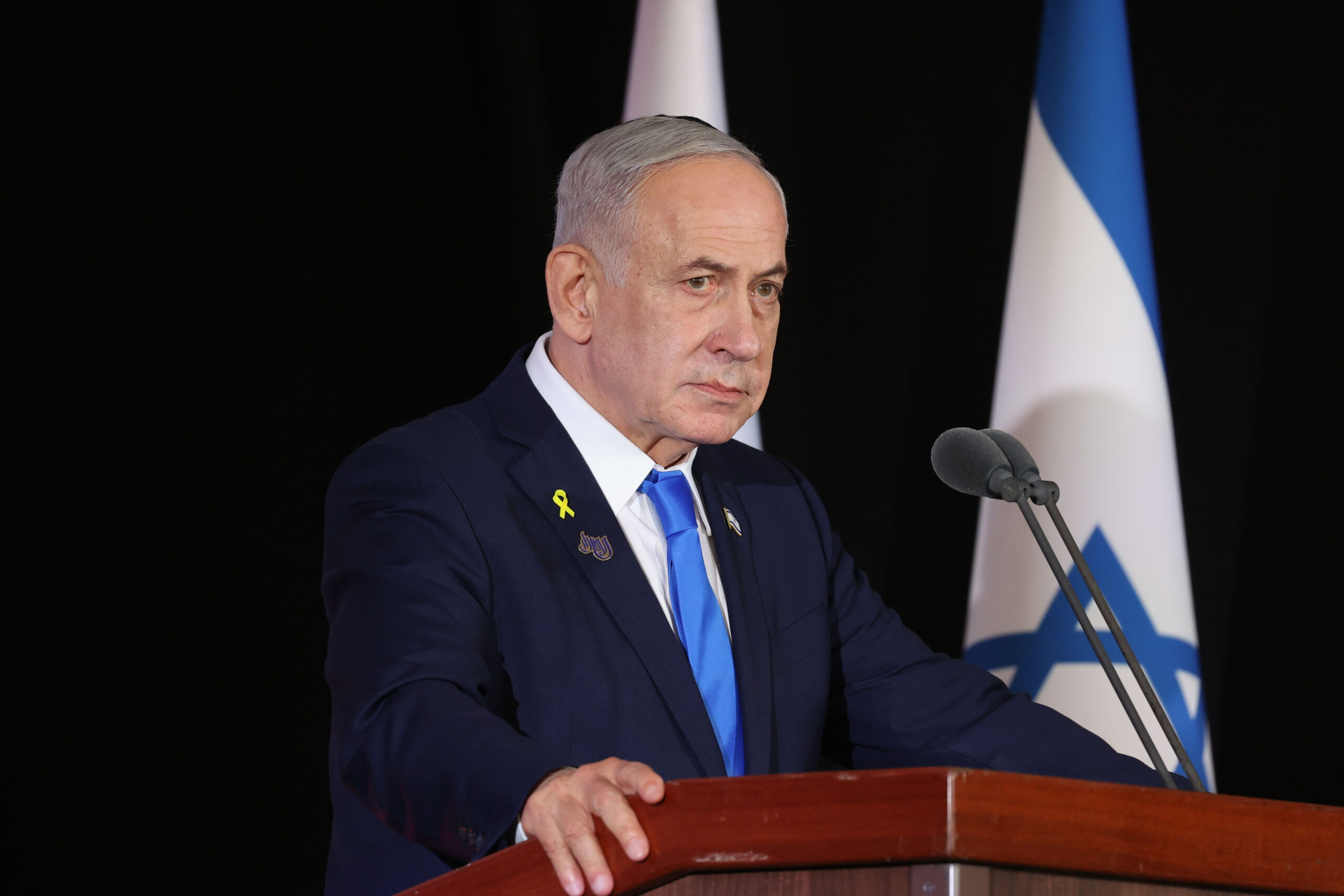Politics
Netanyahu Orders Military Response to Gaza Ceasefire Breach

Israeli Prime Minister Benjamin Netanyahu has directed the nation’s security forces to conduct “strong action” against militant targets in the Gaza Strip. This decision follows accusations that Hamas violated a recent ceasefire agreement. In a statement issued by Netanyahu’s office, it was confirmed that the Prime Minister consulted with the defense minister and senior security officials before making this directive.
Israeli military operations in Gaza have escalated in intensity, particularly in response to ongoing tensions and hostilities. The Prime Minister’s announcement reflects a commitment to address what he termed as “terrorist threats” in the region. “Hamas has crossed a line, and we will respond decisively,” Netanyahu emphasized during the consultations.
Details of the Military Action
The Israeli Defense Forces (IDF) are expected to implement targeted strikes against identified militant positions in Gaza. According to military sources, the operations aim to dismantle Hamas’s infrastructure and diminish its ability to launch further assaults against Israeli citizens. The IDF has not disclosed specific timelines for the operations, citing the need for operational security.
In recent weeks, tensions have surged following a series of exchanges between Israeli forces and Hamas militants, leading to casualties on both sides. The most recent ceasefire agreement, brokered in late February 2024, was intended to reduce violence and foster dialogue. However, Netanyahu’s administration now views Hamas’s actions as a direct challenge to peace efforts.
Local reports indicate that the situation in Gaza has deteriorated, with many civilians caught in the crossfire. Humanitarian organizations have expressed concern over the potential escalation of violence and its impact on the civilian population. The United Nations has urged both parties to exercise restraint and prioritize the safety of non-combatants.
Reactions and International Implications
The international community is closely monitoring the developments in the region. Reactions from various countries and organizations are expected as the situation unfolds. Diplomatic channels are being utilized to urge both Israel and Hamas to return to negotiations to avoid further escalation.
In Israel, public opinion regarding military action is divided. Some citizens support a strong response to perceived threats, while others are wary of the potential for increased violence and instability. The Prime Minister’s office has indicated that the government will continue to assess the situation and adjust its strategies accordingly.
As military operations commence, the world watches with bated breath, aware of the profound implications for peace in the region. The call for strong action by Netanyahu underscores the ongoing complexities of the Israel-Palestine conflict and the persistent challenges of achieving lasting peace.
-

 World5 months ago
World5 months agoSBI Announces QIP Floor Price at ₹811.05 Per Share
-

 Lifestyle5 months ago
Lifestyle5 months agoCept Unveils ₹3.1 Crore Urban Mobility Plan for Sustainable Growth
-

 Science4 months ago
Science4 months agoNew Blood Group Discovered in South Indian Woman at Rotary Centre
-

 World5 months ago
World5 months agoTorrential Rains Cause Flash Flooding in New York and New Jersey
-

 Top Stories5 months ago
Top Stories5 months agoKonkani Cultural Organisation to Host Pearl Jubilee in Abu Dhabi
-

 Sports4 months ago
Sports4 months agoBroad Advocates for Bowling Change Ahead of Final Test Against India
-

 Science5 months ago
Science5 months agoNothing Headphone 1 Review: A Bold Contender in Audio Design
-

 Top Stories5 months ago
Top Stories5 months agoAir India Crash Investigation Highlights Boeing Fuel Switch Concerns
-

 Business5 months ago
Business5 months agoIndian Stock Market Rebounds: Sensex and Nifty Rise After Four-Day Decline
-

 Sports4 months ago
Sports4 months agoCristian Totti Retires at 19: Pressure of Fame Takes Toll
-

 Politics5 months ago
Politics5 months agoAbandoned Doberman Finds New Home After Journey to Prague
-

 Top Stories5 months ago
Top Stories5 months agoPatna Bank Manager Abhishek Varun Found Dead in Well









